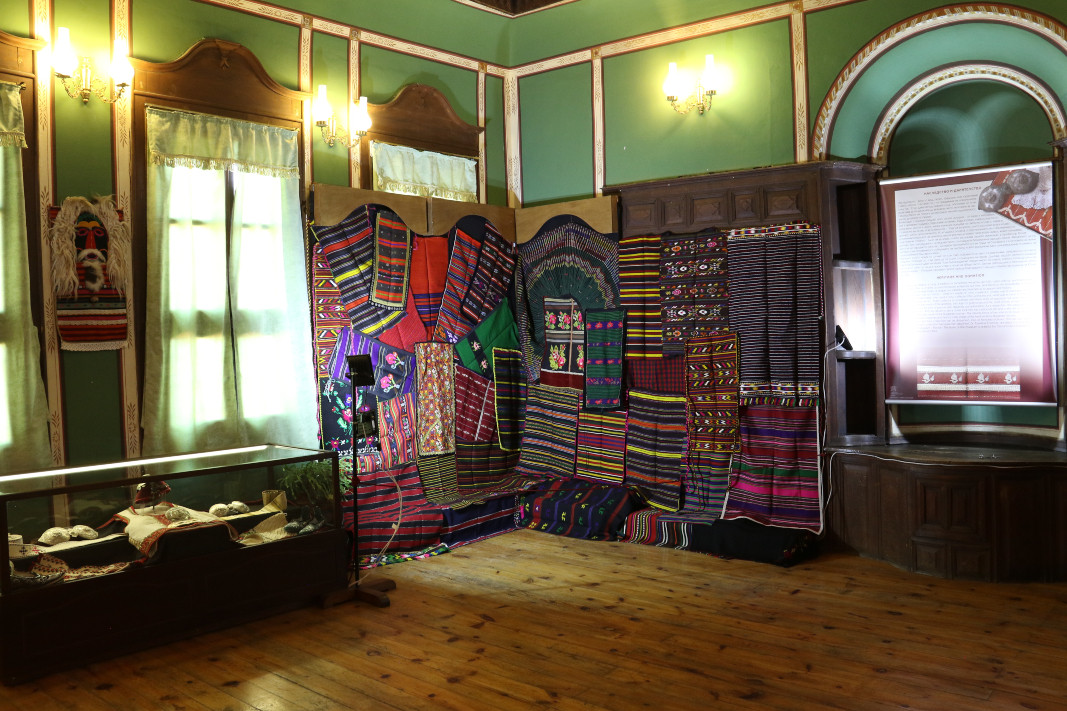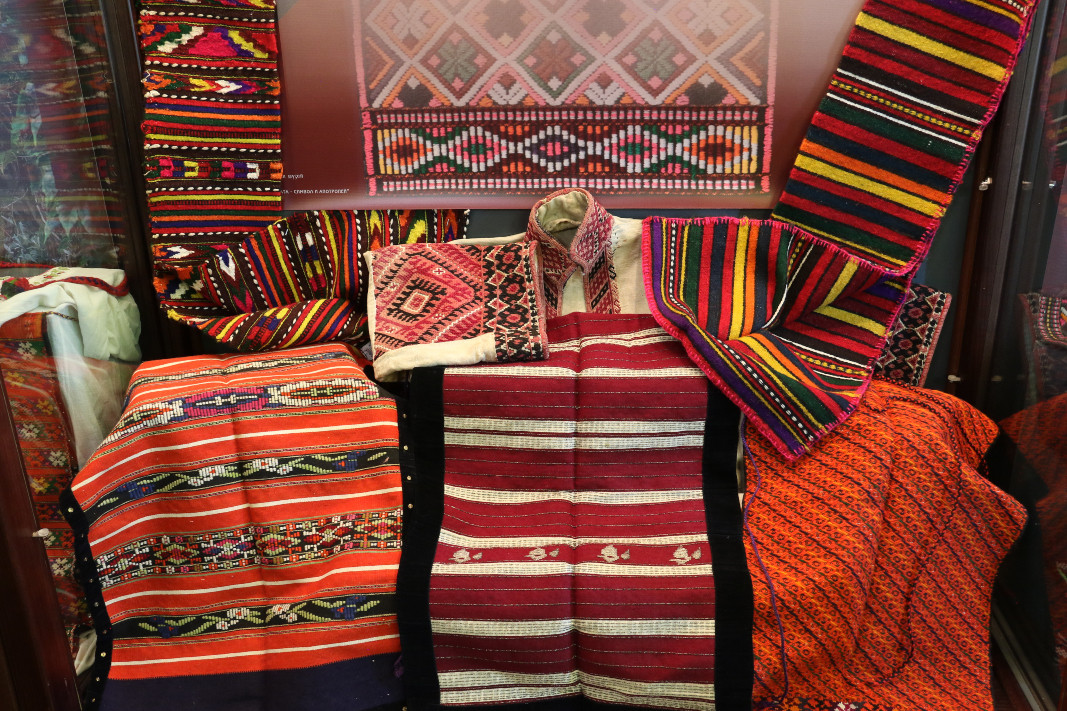 4
4
The way of life, mentality and culture of the Bulgarians from the early 19th century to the 1930s is now on display at the Regional Ethnographic Museum in Bulgaria’s second-biggest city Plovdiv. Visitors to the exhibition "The Apron - a Symbol and an Apotropaic" can enjoy magnificent samples of national costumes, shirts, aprons and socks from different parts of Bulgaria, collected within the space of 20 years by Prof. Julia Dilova and donated to the museum by her daughter.

"The collection is interesting because there are almost no elements of men's clothing in it. It is aimed only at the female part of society”, says Grozdelina Georgieva from the Regional Ethnographic Museum in Plovdiv.“The clothes made by the Bulgarian women protect the body, and the symbols, which are additionally woven or embroidered on them, serve to protect from evil eyes. The garment is a kind of complete apotropaic for the person who wears it. The Bulgarian in the past were afraid of evil spells so they took many precautions. In some regions of Bulgaria the top and heel of the socks are coloured in apotropaic colours - red or green. The patterns on the skirts, sleeves and armpits of the shirts also have a protective effect. Aprons and buckles protect the waist and reproductive organs, and headdresses protect the fontanel, which was considered a person's weakest point”.

Prof. Julia Dilova’s entire life is connected with the problems of women and their rights. She was a UN expert on information systems, a visiting professor at Stanford University, and a professor of economics, standardization and electronic systems. Returning to Bulgaria, she decided to preserve the original beauty of the Bulgarian woman's clothes for the generations to come.

The collection contains about 540 exhibits, including over 200 aprons from all ethnographic regions of Bulgaria. Why is this element of the Bulgarian woman's traditional costume so important?
"Because you can't do without it," Grozdelina Georgieva replies. “Only in the Shoppe region the traditional costume can exist without an apron, but in everyday life. An apron must be worn on holidays and important events. It is the element that is first seen in the costume and is the brightest part of it. In folk culture, it is believed that the apron placed in front protects the female womb, and when combined with a belt and buckles, especially on the wedding day, it is believed that a full circle of protection of the female body is achieved.The most important thing for a woman in the folk culture is to get married and continue the family."

The apron is a sign of ethnicity and age and it also has a social and ritual function. One type is worn on weekdays and another - on holidays.
"Different aprons are worn at different ages with different symbols on them. The aprons of younger women and brides are extremely bright and colourful. The old women's apron is in darker tones and with far fewer symbols on it, because she no longer has a role to play in protecting this woman who has fulfilled her life's functions. The apron is the non-verbal language of the Bulgarian woman, the symbolic language she puts on herself."
In parallel with the exhibition, a luxury catalog "With Love for the Woven" has been published in Bulgarian and English. The photographer is Chavdar Stoychev, and the costumes are presented among the amazing exteriors of the village of Dolen in southwestern Bulgaria, where Prof. Dilova lived and collected the aprons for her collection.

"The catalog is one of the most beautiful that the museum has published. In it one can see all the costumes from the collection of Prof. Dilova, as well as individual specimens, which she failed to collect as a complete set”, Grozdelina Georgieva explains. “Yet they are presented in the catalog, because the purpose is to show the passion and appreciation of a person who is not directly related to history and folklore, but has dedicated 20 years of her life to show female beauty through the work of the nameless folk genius."

English version Rositsa Petkova
The Eastern Rhodopes come to life in the heart of Sofia – with authentic flavoуrs, music and craftsmanship . Residents of the Bulgaria capital have a chance to immerse themselves in the atmosphere of Momchilgrad Municipality and its cultural and natural..
The second annual Bean and Sausage Festival promises to be an unforgettable celebration of flavour and folklore in Zhitnitsa , a village in southern Bulgaria. On 7 September, the grounds of the local equestrian centre will host food lovers..
The Regional Open-Air Ethnographic Museum "Etar" was established as a center for the study of the traditional culture of the Balkan Range people. Today, this unique site near Gabrovo serves as a place where customs and traditions from the Bulgarian..

+359 2 9336 661
